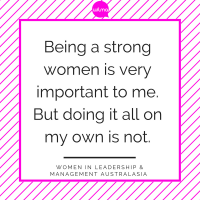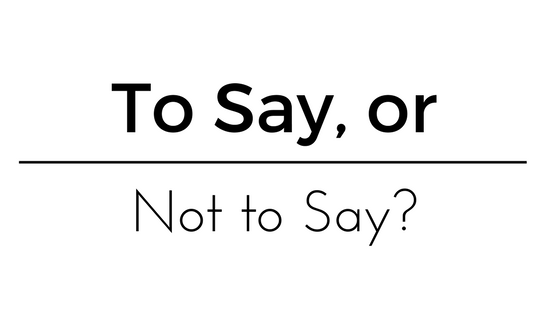Today’s feminism teaches women to see themselves as victims and men as perverts, bullies and misogynists, says Natasha Devon
Earlier this year I was asked to present at a feminist society event in one of the UK’s largest and most prestigious universities. I espoused the view that I must be really lucky, because if recent feminist musings in the press and online are to be believed, misogyny is absolutely rife, yet I have very rarely encountered it.
I’ve had the odd blustering huffer-puffer over the years who has clearly thought himself superior, but I’ve always presumed that’s because of my comparative age and slightly avant garde fashion sense, rather than the simple fact of my vagina. (Whilst it isn’t right to form assumptions about someone based on these criteria, it does take the issue out of the realms of feminism.) These instances have, however, been incredibly few and far between. As for the men I regularly spend time with – my male colleagues and friends, boyfriend, dad, my three brothers and numerous uncles and cousins – they’ve never given me any cause to suspect they’re anything but pro-gender equality.
At the end of the session, one of the Society’s senior members said: “It’s great that you don’t think there’s any misogyny in your world, but I think if you talked to these men for long enough you’d find there were some pretty sinister ideas about women buried somewhere beneath the surface.”
In that moment, I suddenly realised why so many aspects of the modern feminist movement in Britain irritate me so much. Don’t misunderstand, I’d consider myself a feminist and I’m all for structural changes which ensure equal treatment of the sexes – the types that are working to ensure we have an equal number of female MPs and laws to prevent female genital mutilation, for example. But cultural “feminist” changes, the types that insist lads mags, Page 3 and wolf-whistling are automatically offensive and should therefore be scrapped from the public consciousness, I have always struggled to comprehend. For, at their crux is the notion that men are either genetically or socially conditioned to be evil. This explains why relatively harmless acts – an admiring glance, a whistle, a propensity for lads mags – are imbued with such weighty significance, often lazily labelled as “rapey”.
If a man looks at me, I infer he’s doing it for the exact same reason a woman would – because he finds me interesting to look at. If a man whistles at me, I take it as the compliment I believe it was intended to be. If I see a man looking at a female glamour model, I suppose nothing more than he is looking at her because a naked woman is pretty much universally aesthetically pleasing. I have always assumed that Robin Thicke’s Blurred Lines transpired to be the most downloaded single of all time in the UK because it’s well produced and ridiculously catchy, not because huge swathes of the male population delight in the notion that men “know women want it” and use the lyrics as their life mantra. Call me naive if you must.
I’ve become increasingly bemused by the “Twitter activists” whose “feminist” world view, however much they try to disguise it, necessitates a dim view of mankind. Some, for example, have taken to posting pictures of men looking at Page 3 on the train, with captions branding these individuals “creepy”, “vile” and “disgusting” without any sort of meaningful explanation. These women have made a broad assumption about what their male subjects are thinking – based on we know not what – and despise the product of their own projections.
Similarly, I’m horrified with the regularity and ease with which the word “misogynist” is flung about online. Recently, I wrote an article for a feminist publication on the importance of prioritisation and pragmatism in social progression and suggesting these were often sadly absent from feminist campaigning. During the subsequent inevitable Twitter storm (during which “feminists” threatened to “rip me apart”, called me a “piece of s—” and a “brainless bimbo” in an incredibly sisterly fashion) a male tweeter calmly pointed out several historical instances where negotiation had resulted in progression. As a result, he was publicly called a “pendantic misogynist” by the mob.
A pedant he might have been, but it’s worth noting the official definition of misogynist as “someone who hates women” rather than “anyone who dares question the popular feminist status quo”.
In the same article, I dared to suggest that we should take into account men’s feelings and viewpoints on key feminist issues. “Men have had their voices heard for FAR TOO LONG! IT’S OUR TURN!” came the online battle cry, as though even garnering some male opinions would be a threat to womankind’s empowerment, so toxic and self-serving they would inevitably be.
Everyday Sexism movement is a fantastic idea – an opportunity for an open debate on the ways in which genders mindlessly form prejudices against each other. So why have its followers largely excluded men from the conversation? “You can’t be sexist towards men!” was a university student’s response to this question at another debate I attended (she was studying feminism, by the way). Which is a bit like saying black people can’t be racist.
In Britain in 2014, girls are entitled to the same education as boys, they can then go on to get any job they want and be paid the same as a man. Not only is this not true for millions of women throughout the world, it wasn’t true for our foremothers. I’d much rather say to young women, “these rights were hard won. Go and make the most of them” than “no wonder you can’t fulfil your potential! Men whistle at you and there are boobies in the newspaper, you poor helpless little things”.
Today’s feminism teaches British women to see themselves as victims and victims cannot exist without a villain, in this instance – men. In order for this thesis to have any kind of logic, feminists have made sweeping, inaccurate judgments about an entire demographic, based on nothing more than their gender. Ironically, the exact practice they claim to be fighting.
Gender equality requires co-operation on all sides. As a humanist, I’d like to see today’s feminists give men a bit more credit – they might just be surprised.
This article was originally published on The Telegraph UK 15th May 2014 Read the original article









Leave A Comment